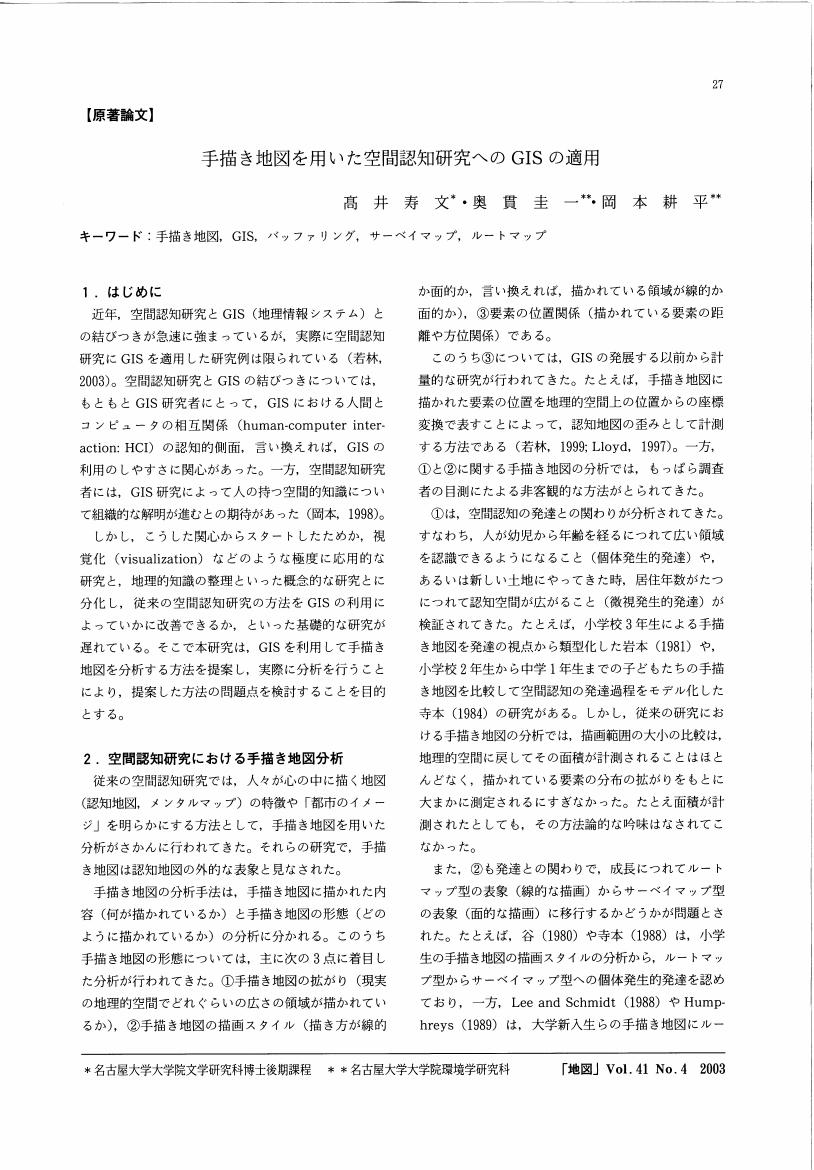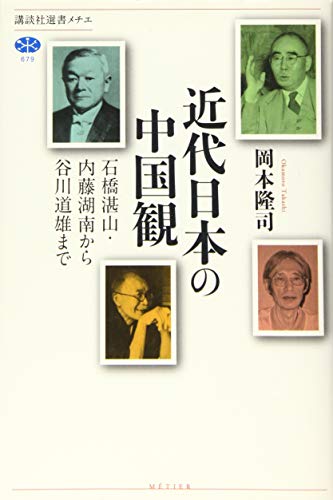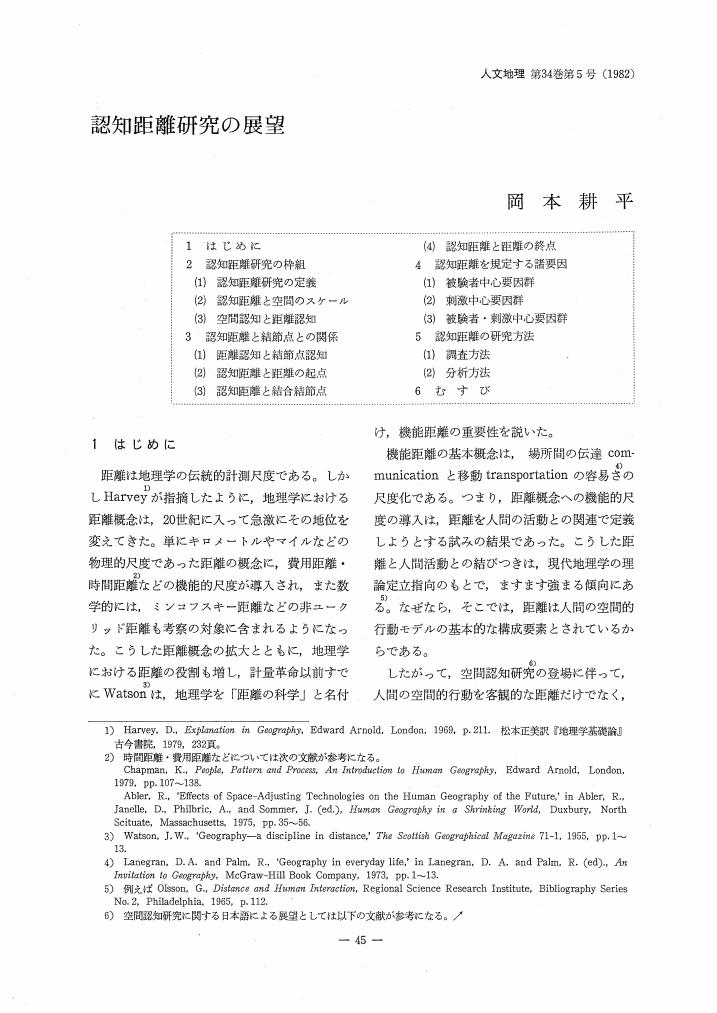2 0 0 0 OA スポーツパフォーマンスと血液型:武道系種目からの考察
- 著者
- 古澤 伸晃 岡本 瑞穂 新里 知佳野 八木沢 誠
- 出版者
- 日本体育大学
- 雑誌
- 日本体育大学紀要 (ISSN:02850613)
- 巻号頁・発行日
- vol.49, pp.3035-3039, 2020
The ABO blood type is naturally accepted in Japan and is often used for entertainment, such as offering blood type personality diagnoses and blood type divination. Even today, the belief that blood type and personality have an impact on sports performance persists, especially on the Internet. There are conflicting opinions about the authenticity of this idea, and they have not seen the conclusion. In order to offer further insight, this study describes the relationship between sport performance and blood type using quantitative surveys and literature materials.We conducted a web questionnaire survey for 306 university students majoring in three martial arts: kendo, judo, and sumo. The questions asked participants about their athletic career, competition results, qualifications, and blood type. The response rate was 98.6%. Regardless of the specific type of martial art in question, the blood type distribution was as follows: 116 (38.4%) type A, 71 (23.5%) type B, 84 (27.8%) type O, 26 (8.6%) type AB, and 5 unknown (1.7%). It is assumed that the blood type frequency of Japanese is 37% for type A, 22% for type B, 32% for type O, and 9% for type AB. Thus, this result accords with the distribution of the ABO blood type of the Japanese, thereby suggesting that there is no relation between martial arts majors and blood type. In terms of the length of the athletes’ careers, 95 people had more than 15 years of experience, 169 people had 10 to 15 years, 29 people had 5 to 10 years, and 9 people had less than 5 years. Thus, those who had been active for more than 10 years represented 87.4% of the total. These individuals were considered experts, and we compared the number of athletes by blood type for each of kendo, judo, and sumo. Although the number of type A and type O respondents was the same in judo, the results show that the number of athletes with types A, O, B, and AB blood had the same tendency as the blood type distribution of Japan as a whole. Competition results were divided into two groups: those who participated in national tournaments (passing the qualifying round), including the world championship, and those who competed in local tournaments, prefectural tournaments, and at other levels below national tournaments. The results show that the achievements of type A athletes are not particularly remarkable. In fact, as the number of type A athletes as a proportion of the whole is large, it only looks large as a numerical value. More generally, regarding all blood types, the reason why more individuals from the same blood type have participated more frequently at the national level and above can be attributed to the selection bias of majoring in martial arts.In summary, performance and blood type have no remarkable correlation in terms of martial arts.Blood type and personality can be explained as a form of pseudoscience; therefore, some people will believe it. Research on blood types is indispensable for science. However, establishing how to bring novelty in thinking and suppress pseudoscience represents a task for future research. The most important aspect of achievement in the context of sport is the accumulation of daily training and effort.
2 0 0 0 IR 愛知県東栄町の花祭り
2 0 0 0 OA 可逆性脳血管攣縮症候群(RCVS)6例の臨床的検討
- 著者
- 宮腰 淑子 五十嵐 修一 永尾 侑平 井上 重宏 佐藤 朋江 関谷 可奈子 新保 淳輔 佐治 越爾 森田 健一 佐々木 修 岡本 浩一郎 佐藤 晶 山崎 元義
- 出版者
- 一般社団法人 日本脳卒中学会
- 雑誌
- 脳卒中 (ISSN:09120726)
- 巻号頁・発行日
- vol.34, no.1, pp.8-15, 2012-01-25 (Released:2012-01-27)
- 参考文献数
- 19
- 被引用文献数
- 1
【背景および目的】可逆性脳血管攣縮症候群(reversible cerebral vasoconstriction syndrome; RCVS)は,雷鳴頭痛を主徴とし,脳血管に可逆性の分節状攣縮を認める疾患である.本疾患の臨床経過と画像所見の経過の検討を目的とした.【方法】2004年6月から2010年12月までに当科にRCVSの診断で加療を行った6例について検討した.【結果】発症年齢は39-53歳(平均44歳)で,女性が4例,男性が2例であった.全例に雷鳴様頭痛を認めた.3例が脳卒中を発症し,全例が女性であった.脳出血が1例,くも膜下出血と脳出血との合併例が2例であった.ベラパミルが5例に投与され,症状改善がみられたが,1例に片麻痺の後遺症を残した.【結論】突然の激しい頭痛を訴える患者を診察する際には,RCVSを鑑別に含める必要がある.
2 0 0 0 文章読解能力および文章表現能力の向上の試み
- 著者
- 福本 久人 田端 吉彦 岡本 美幸 筧 重和
- 出版者
- 東海北陸理学療法学術大会
- 雑誌
- 東海北陸理学療法学術大会誌
- 巻号頁・発行日
- vol.28, 2012
<b>【目的】 </b>近年、高校卒業後の入学生における文章読解能力や文章表現能力の低下が著しい状況がある。文章読解能力の低下により、漢字が読めない、教科書や文献の内容について理解できないことが起き、定期試験の不合格や留年、もしくは退学につながるケースも少なくない。また、臨床実習においてはレポート作成や症例報告書の作成などの機会が設けられるが、その作成に膨大な時間を費やしたり作成自体ができないこともある。このような事に対応するため、当校では入学後コラムなどを用いて文章読解能力や文章表現能力の向上を試みているので報告する。<br><b>【方法】 </b>対象は、理学療法学科1年生40名とした。方法は、新聞のコラムを使用して行っている。最初の段階として、コラムを書き写すことからはじめ、次に語彙調べおよび文章内容の段落分けを行わせ、コラム内容についての理解度の向上に取り組んだ。最終段階として、文章内容の要約とタイトル設定を指示した。特に文字制限は設けないものの内容の理解度および文章表現の適切化についての指導を行っている。頻度としては、週に3回より開始し5回を限度として行っている。<br><b>【結果】 </b>最初の文章を書き写す段階では、書き写すだけでも非常に時間がかかる学生や誤字脱字が多い学生も見られた。しかし、これは繰り返し行うことで徐々に改善が見られた。次の内容についての理解の文書化については、何を書いてよいのかわからない、コラムの書き写しになってしまう、など多くの学生が文章化できない状況であった。個別に指導を行うことで改善されていったが、問題として非常に膨大な時間を費やさないとできないことであった。内容を理解するために必要な時間、理解した内容を文章表現化するための時間は、指導を繰り返す中でも改善されないケースも見られた。<br><b>【考察】 </b>高校までの教育課程の中で、コラム程度の文字数であっても文章を読む機会が少ないこと、内容を理解し文章化する機会が少ないことが影響しているのではないかと考える。また、携帯電話の普及や電子メールの普及により、他者とのコミュニケーションをはかる機会が少なくなっていることも原因の1つではないかと考える。電子メールなどでは、いわゆる略語や絵文字が乱用されており、時・所・場合に応じた適切な表現や言葉をしようされることがないため、電子メールの活用によって文章表現能力の向上にはつながっていかないと考える。<br><b>【まとめ】 </b>今回、入学生に対し文章読解能力および文章表現能力の向上を目的に、コラム課題を実施した。文章を読む、文章を書く事を習慣化させることで、一定の改善傾向はみられた。今後の課題としては、より有効な方法へと更に検討が必要ではないかと考える。<br> 本発表を行うにあたり、あいち福祉医療専門学校倫理委員会の承認を得ている。
- 著者
- 岡本 洋一 オカモト ヨウイチ Okamoto Yoichi
- 出版者
- 雇用構築学研究所
- 雑誌
- News letter = ニューズレター
- 巻号頁・発行日
- no.48, pp.14-19, 2016-01
筆者・岡本洋一が、2012年に博士号を取得し、熊本大学大学院法曹養成研究科に職を得るまでの汗と(悔し)涙と、モラトリアムな12年を赤裸々に綴る自伝的エッセイ!
2 0 0 0 OA Cornelia de Lange症候群に併発した盲腸捻転:臨床および画像の検討
- 著者
- 江口 麻優子 野坂 俊介 植松 悟子 藤野 明浩 金森 豊 岡本 礼子 窪田 満 石黒 精
- 出版者
- 日本小児放射線学会
- 雑誌
- 日本小児放射線学会雑誌 (ISSN:09188487)
- 巻号頁・発行日
- vol.35, no.2, pp.107-115, 2019 (Released:2019-11-22)
- 参考文献数
- 18
小児の盲腸捻転は稀であるが,重症心身障害児,特にCornelia de Lange症候群(以下CdLS)での報告が多い.症状は非特異的で,画像診断の役割は大きい.早期診断は腸管壊死を回避する上で重要で,診断や治療の遅れは死亡に繋がる可能性がある.当院で経過観察中のCdLS 13例中4例に盲腸捻転を認めた.いずれも盲腸捻転に特異的な腹部単純撮影所見,もしくは過去と比較して変化を認め,引き続き行った造影CT所見から全例で術前に盲腸捻転を疑うことができた.盲腸捻転併発4例と捻転非併発9例を比較すると,併発例全例が胃瘻造設術・噴門形成術後で,これらの手術が捻転の誘因になると考えられた.また,既報告と比較して死亡率と術後合併症率は,より低率であった.CdLSで,胃瘻造設術・噴門形成術後の児が腹部症状を示す場合,盲腸捻転の併発を念頭に,腹部単純撮影に続く造影CTが早期診断と治療に有用である.
2 0 0 0 OA 手描き地図を用いた空間認知研究へのGISの適用
- 著者
- 高井 寿文 奥貫 圭一 岡本 耕平
- 出版者
- Japan Cartographers Association
- 雑誌
- 地図 (ISSN:00094897)
- 巻号頁・発行日
- vol.41, no.4, pp.27-36, 2003-12-28 (Released:2011-07-19)
- 参考文献数
- 13
2 0 0 0 OA 不明熱の原因として,特発性後天性全身性無汗症と診断できた1例と文献的考察
- 著者
- 坂野 翔子 岡本 隆二 鈴木 康夫 山本 彩人 中谷 仁 村田 智博 洪 英在 藤井 英太郎 山田 典一 伊藤 正明
- 出版者
- 一般社団法人 日本内科学会
- 雑誌
- 日本内科学会雑誌 (ISSN:00215384)
- 巻号頁・発行日
- vol.107, no.3, pp.564-570, 2018-03-10 (Released:2019-03-10)
- 参考文献数
- 10
68歳,男性.1カ月以上続く不明熱の原因検索目的で当院に紹介された.各種検査で異常を認めず,詳細な問診で発汗の自覚がないことが判明したため,発汗テストを行った.広範囲で発汗を認めず,特発性後天性全身性無汗症(acquired idiopathic generalized anhidrosis:AIGA)と診断した.炎症反応上昇を伴わず,発汗障害を認める患者には,本疾患を鑑別疾患に挙げる必要がある.
2 0 0 0 風を用いたゲームプレイ中の臨場感の向上
- 著者
- 岡本 早織 羽田 久一
- 雑誌
- エンタテインメントコンピューティングシンポジウム2020論文集
- 巻号頁・発行日
- no.2020, pp.196-198, 2020-08-22
2 0 0 0 OA 13世紀後半におけるジュチ・ウルスとマムルーク朝の外交関係 使節派遣の目的について
- 著者
- 岡本 和也
- 出版者
- 一般社団法人 日本オリエント学会
- 雑誌
- オリエント (ISSN:00305219)
- 巻号頁・発行日
- vol.50, no.2, pp.252-274, 2007 (Released:2010-03-12)
- 参考文献数
- 46
The Jochid Ulus (the Golden Horde) and the Mamluks were dispatching envoys to each other in the Black Sea-Eastern Mediterranean region in the late 13th century. Diplomatic relations between the Jochid Ulus and the Mamluks have been well studied by modern scholars, but in these previous studies, it was often stated that the relationship between them originated in their mutual understanding that they shared a common enemy in the Ilkhanids. However, considering the importance of the Byzantine Empire through which the envoys had to pass, it is impossible to dispense with a discussion on the role of the Byzantine Empire in this relationship.This article aims at a reexamination of the dispatch of envoys between the Jochid Ulus and the Mamluks by analyzing the Mamluk chronicles. In addition, in order to understand the purpose of the envoys between the Jochid Ulus and the Mamluks the Mamluk-Byzantine envoys will also be examined.My conclusions are that the Jochid Ulus and the Mamluks were sending envoys not just because of mutual hostility towards the Ilkhanids, but also for trading mamluks between their two countries. In other words, these envoys had commercial purposes, such as trading mamluks, as well as political ones, such as cooperating against the Ilkhanids. For these two countries, dispatching envoys was important policy affecting the basis of their existence.
- 著者
- 生田 太 出口 広紀 岡本 貢一 名古屋 幸司 佐藤 史也 水沼 由貴 金子 礁 新井 恵実 蒲田 和芳
- 出版者
- 理学療法科学学会
- 雑誌
- 理学療法科学 (ISSN:13411667)
- 巻号頁・発行日
- vol.30, no.3, pp.339-344, 2015 (Released:2015-07-07)
- 参考文献数
- 25
- 被引用文献数
- 1 1
〔目的〕変形性膝関節症(膝OA)を有する高齢者の膝内転モーメントや活動性に対するRRR(膝回旋エクササイズ)プログラムの効果を明らかにすることを目的とした.〔対象〕膝OAを有する女性高齢者を無作為に割り付け,被検者数は慣習エクササイズ群12名,RRRプログラム群9名であった.〔方法〕介入前後で歩行時の膝内転モーメントとKOOS,SF-36の計測を実施した.〔結果〕SF-36はRRRプログラム群の方が有意に向上した.KOOSと膝内転モーメントに群間差は認められなかったが,膝内転モーメントはRRR群にて減少傾向であった.〔結語〕RRRプログラムは膝OA患者の生活向上に効果的であることが示された.
2 0 0 0 OA つくばエクスプレス開業が周辺住民の交通行動に与えた影響
- 著者
- 岡本 直久 川田 真理絵 石田 東生 堤 盛人 谷口 綾子 諸田 恵士
- 出版者
- Japan Society of Civil Engineers
- 雑誌
- 土木計画学研究・論文集 (ISSN:09134034)
- 巻号頁・発行日
- vol.25, pp.801-806, 2008-09-30 (Released:2010-06-04)
- 参考文献数
- 5
本論文では、つくばエクスプレスの周辺地域における住民の交通行動の変化と、交通手段に対する意識の変化を把握し、つくばエクスプレス開業が住民に与えた影響を把握することを目的としている。2005年8月24日、つくば市と秋葉原を結ぶつくばエクスプレスが開業し、つくば市とその周辺地域では、路線バスの再編や駅の新設・道路整備などが行われ、地域内の交通体系が大きく変化したことが期待される。結果として、駅などの幹線公共交通へのアクセス手段について、つくばエクスプレス開業前に比べて住民がより合理的に交通手段を選択する傾向が示唆され、アクセス手段の交通サービスレベルが変化していることが伺えた。
- 著者
- 岡本 健
- 出版者
- 近畿大学中央図書館
- 雑誌
- 香散見草: 近畿大学中央図書館報 = Kazamigusa (ISSN:0912991X)
- 巻号頁・発行日
- no.53, pp.8-11, 2021-03
2 0 0 0 OA MABE2: 第2回火星飛行機高高度飛行試験
- 著者
- 大山 聖 永井 大樹 藤田 昂志 安養寺 正之 岡本 正人 江 光希 金崎 雅博 高野 敦 水上 諒 竹内 伸介 安部 明雄 佐々 修一 布田 翼 満武 勝嗣 得竹 浩 火星探査航空機リサーチグループ Oyama Akira Nagai Hiroki Fujita Koji Anyoji Masayuki Okamoto Masato Koh Mitsuki Kanazaki Masahiro Takano Atsushi Mizukami Ryo Takeuchi Shinsuke Abe Akio Sasa Shuichi Futa Tsubasa Mitsutake Katsushi Tokutake Hiroshi
- 出版者
- 宇宙航空研究開発機構宇宙科学研究所(JAXA)(ISAS)
- 雑誌
- 大気球シンポジウム: 平成30年度 = Balloon Symposium: 2018
- 巻号頁・発行日
- 2018-11
大気球シンポジウム 平成30年度(2018年11月1-2日. 宇宙航空研究開発機構宇宙科学研究所 (JAXA)(ISAS)), 相模原市, 神奈川県
- 著者
- 貝森 弘行 岡本 吉史 若尾 真治
- 出版者
- 一般社団法人 電気学会
- 雑誌
- 電気学会論文誌D(産業応用部門誌) (ISSN:09136339)
- 巻号頁・発行日
- vol.139, no.4, pp.380-387, 2019-04-01 (Released:2019-04-01)
- 参考文献数
- 15
- 被引用文献数
- 1
Recently, from the viewpoint of vibration and noise reductions, torque ripple reduction of motor-equipped electrical machines is the need of the hour. The authors have already proposed to improve torque characteristics of a synchronous reluctance motor using the topology optimization method. The evaluated rotor structure succeeded in substantial torque ripple reduction, but the cause for this reduction was unknown. In this paper, we investigate the reason for torque ripple reduction using the improved rotor structure of the motor by a topology optimization method known as R-SLP, by comparing it to the reference model using finite element analysis. A calculation method is proposed to analyze the circumferential magnetic force density of spatial and time harmonic orders using the magnetic density in the air gap. By focusing on the time order at which the torque waveform was evaluated, we estimate which circumferential magnetic force density orders affect torque ripple reduction. Then, we clarify the reason for torque ripple reduction to examine the influence of local shape of rotor structure using 12th time-harmonic magnetic fields. As a result, the modified flux barrier rotor structure is obtained, which further reduces the torque ripple in comparison to the previous structure.
2 0 0 0 近代日本の中国観 : 石橋湛山・内藤湖南から谷川道雄まで
2 0 0 0 OA 認知距離研究の展望
- 著者
- 岡本 耕平
- 出版者
- The Human Geographical Society of Japan
- 雑誌
- 人文地理 (ISSN:00187216)
- 巻号頁・発行日
- vol.34, no.5, pp.429-448, 1982-10-28 (Released:2009-04-28)
- 参考文献数
- 89
- 被引用文献数
- 7 1
2 0 0 0 OA インドシアニングリーン修飾リポソームを用いたがん治療:基礎と臨床
- 著者
- 岡本 芳晴 菅波 晃子 田村 裕
- 出版者
- 公益社団法人 日本薬学会
- 雑誌
- ファルマシア (ISSN:00148601)
- 巻号頁・発行日
- vol.51, no.11, pp.1042-1046, 2015 (Released:2018-08-26)
- 参考文献数
- 4
我々は,患者(ヒト,コンパニオンアニマル等)に安全・安心な医療技術として,ナノテクノロジーによる高機能性医薬品と光テクノロジーによる医療機器を融合した非侵襲性医療システムを構築すべく研究開発を進めている.具体的には,インドシアニングリーン(ICG)の基本骨格にアルキル鎖またはリン脂質を修飾したICG誘導体を脂質二重膜に組み込んだリポソーム製剤,インドシアニングリーン修飾リポソーム(ICG-Lipo)を開発するとともに,ICG-Lipoによるドラッグデリバリーシステム(DDS)と近赤外線診断治療装置を併用することにより,乳がんの早期発見を可能にする「非侵襲性同定法」,外科手術が不可能な症例に対する「非侵襲性治療法」,末期がん患者に対する「質の高い緩和医療」等の創生に取り組んでいる.ICGを用いたがん治療に関しては,獣医領域において,鳥取大・岡本らによる先駆的な試みがある.具体的には,表在性がんを対象にがん組織に少量の抗がん剤を含有するICG溶液を局注後,光照射(光線温熱化学療法)を行ってきた.一方ICGを血管内に投与した場合,血漿タンパク質と速やかに結合し,肝実質細胞に取り込まれて胆汁に排泄される.そのため,センチネルリンパ節や腫瘍組織を特異的かつ長時間にわたって同定することが困難であり,深部のがんに対しては有効な診断・治療法には至らなかった.千葉大・田村らは,ICGの血中半減期を改善するとともに,センチネルリンパ節や腫瘍組織への特異的集積と長期間繋留を可能とするリポソーム製剤としてICG-Lipoを開発した.さらに,医薬品としてのICG-Lipoと医療機器としての近赤外線診断治療装置を併用した非侵襲性医療システムとして,非侵襲性同定法ならびに光線力学温熱療法を構築してきた.しかしながら,ヒト医療への承認段階において高い壁に行く手を阻まれていた.その後,鳥取大・岡本らは,千葉大・田村らからICG-Lipoの供給を受けることにより,近赤外線治療装置を併用したがん治療に関する検討を実験動物を用いて2011年1月より開始し,その安全性と有効性を確認した.また,「産学連携コンソーシアム:鳥取大・千葉大・民間動物病院・飛鳥メディカル・東京医研・立山マシン」を2013年9月に形成し,コンパニオンアニマルを対象とした獣医師主導型臨床試験による診断・治療を実施するに至っている.
2 0 0 0 OA 胎児異常の診断を受けた女性とそのパートナーの支援に関する文献レビュー
- 著者
- 岡本 留美 我部山 キヨ子
- 出版者
- 公益社団法人 日本看護科学学会
- 雑誌
- 日本看護科学会誌 (ISSN:02875330)
- 巻号頁・発行日
- vol.35, pp.194-202, 2015-11-02 (Released:2015-11-17)
- 参考文献数
- 28
目的:胎児異常の診断を受けた女性とそのパートナーの支援に関する文献を整理し,支援の方向性と今後の研究課題について示唆を得る.方法:PubMed, Web of Science, 医学中央雑誌を用いて“fetal abnormality (胎児異常)”“women(女性)”“partner(パートナー)”“nursing(看護)”をキーワードに2003年1月から2013年12月の期間に発表された文献を検索.胎児異常を診断された女性の体験や心理に関する研究とパートナーの体験を含む26文献(国内文献10件・海外文献16件)を分析対象とした.結果:妊娠期の女性に焦点を当てた研究がほとんどであった.女性とパートナーの心理特性では,診断時における悲嘆,不安,ショック,などの心理的反応に性別の違いはなく,夫婦間での一致の頻度は高かった.また,夫婦ともにネガティブな感情だけでなく,希望などのポジティブな感情もみられた.医療者には,胎児異常の診断時から正確な情報提供を行うことや共感的で継続的な支援が求められていた.結論:日本の研究は海外に比べ集積が少ない現状にあり,日本の社会文化的背景のなかでの検討が必要である.今後は,ケアシステム構築のため,パートナーも含めたケアニーズやケアの質評価に関する検討が必要である.女性とそのパートナーの支援を行う看護者への教育プログラムの必要性が示唆された.
2 0 0 0 OA 頸部回旋により両側頭蓋外椎骨動脈解離を来して発症したbow hunter 症候群の1 例
- 著者
- 渡部 真志 二宮 怜子 近藤 総一 鴨川 賢二 冨田 仁美 藤原 聡 奥田 文悟 岡本 憲省
- 出版者
- 一般社団法人 日本脳卒中学会
- 雑誌
- 脳卒中 (ISSN:09120726)
- 巻号頁・発行日
- pp.10714, (Released:2020-04-24)
- 参考文献数
- 18
要旨:症例は41 歳男性.習慣的に行っていた頸部回旋直後に後頸部痛を自覚した後,ふらつき,呂律困難,右半身の脱力が順に出現した.意識はJCS 1 で,右同名半盲,構音障害,右片麻痺,左上下肢の運動失調がみられた.頭部MRI,DWI で左小脳と左視床内側に急性期脳梗塞を認めた.頭頸部MRA ならびに造影CT にて右椎骨動脈解離による動脈原性塞栓症と診断した.脳血管撮影では左回旋位で右椎骨動脈の血流の途絶がみられた.撮影中,右頸部回旋時に後頸部痛を生じた.左椎骨動脈に狭窄性変化と右回旋位で血流の途絶を認めた.検査後から一過性の浮動感が出現した.翌日の頭部MRA にて新たに左椎骨動脈解離を認めたため,両側椎骨動脈解離によるbow hunter 症候群(BHS)と診断した.抗血小板剤内服と頸部硬性カラー装着にてBHS に関連する症状は速やかに改善した.頭蓋頸椎移行部における椎骨動脈解離を疑って脳血管撮影を行う際には,頸部回旋により新たな動脈解離を来す恐れがあることに最大限の注意を払うべきと考える.


